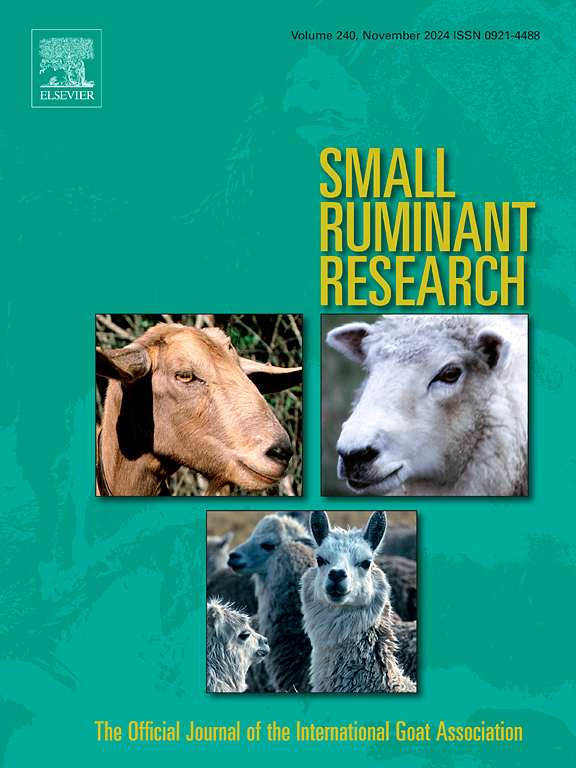可持续绵羊养殖的创新蛋白质来源:美利奴羔羊日粮中黑虻幼虫饲料的评估
IF 1.6
3区 农林科学
Q2 AGRICULTURE, DAIRY & ANIMAL SCIENCE
引用次数: 0
摘要
全球对动物性食品日益增长的需求对可持续性和动物福利构成了挑战,特别是在集约化生产系统中。本研究旨在探索黑兵蝇幼虫(BSFL)作为美利奴羔羊日粮中可持续和创新蛋白质来源的潜力,为大豆粕提供替代方案。在50 d的育肥期,饲喂2种饲粮处理:大豆粕和BSFL粕。关键指标包括生产性能(体重、体况评分、采食量、平均日增重和饲料转化效率)、瘤胃发酵特征和一些应激生化指标(葡萄糖水平、皮质醇水平和血浆蛋白浓度)。值得注意的是,在生长性能、瘤胃健康或应激指标方面,不同饲粮之间没有发现显著差异,这表明BSFL饲粮可能是一种可行的、有竞争力的替代品。这些结果强调了BSFL通过减少对大豆粕等对环境有影响的饲料成分的依赖,提高小型反刍动物生产可持续性的潜力。本研究强调了BSFL饲粮在促进小反刍动物营养的资源效率、环境保护和创新解决方案方面的相关性。这些发现为在反刍动物的饮食中加入昆虫,特别是黑虻幼虫,作为提高生产系统可持续性的可行策略打开了大门。本文章由计算机程序翻译,如有差异,请以英文原文为准。
Innovative protein sources for sustainable sheep farming: Assesing black soldier fly larvae meal in merino lamb diet
The growing global demand for animal-based food poses challenges to sustainability and animal welfare, especially in intensive production systems. This study explores the potential of black soldier fly larvae (BSFL) meal as a sustainable and innovative protein source for Merino lamb diets, offering an alternative to soybean expeller meal. Over a 50-day fattening period, Merino lambs were fed two dietary treatments: soybean expeller meal (S) and BSFL meal. Key metrics were evaluated, including productive performance (body weight, body condition score, feed intake, average daily gain, and feed conversion efficiency), ruminal fermentation profiles, and some stress biochemical indicators (glucose levels, cortisol levels, and plasma protein concentrations). Notably, no significant differences were found between diets in terms of growth performance, ruminal health, or stress markers, suggesting that BSFL meal could be a viable and competitive alternative. These results highlight the potential of BSFL to enhance sustainability in small ruminant production by reducing reliance on environmentally impactful feed ingredients like soybean expeller meal. This study underscores the relevance of BSFL meal in promoting resource efficiency, environmental conservation, and innovative solutions in small ruminant nutrition. These findings open the door to the inclusion of insect use, specifically black soldier fly larvae, in ruminant diets as a viable strategy to improve the sustainability of production systems.
求助全文
通过发布文献求助,成功后即可免费获取论文全文。
去求助
来源期刊

Small Ruminant Research
农林科学-奶制品与动物科学
CiteScore
3.10
自引率
11.10%
发文量
210
审稿时长
12.5 weeks
期刊介绍:
Small Ruminant Research publishes original, basic and applied research articles, technical notes, and review articles on research relating to goats, sheep, deer, the New World camelids llama, alpaca, vicuna and guanaco, and the Old World camels.
Topics covered include nutrition, physiology, anatomy, genetics, microbiology, ethology, product technology, socio-economics, management, sustainability and environment, veterinary medicine and husbandry engineering.
 求助内容:
求助内容: 应助结果提醒方式:
应助结果提醒方式:


